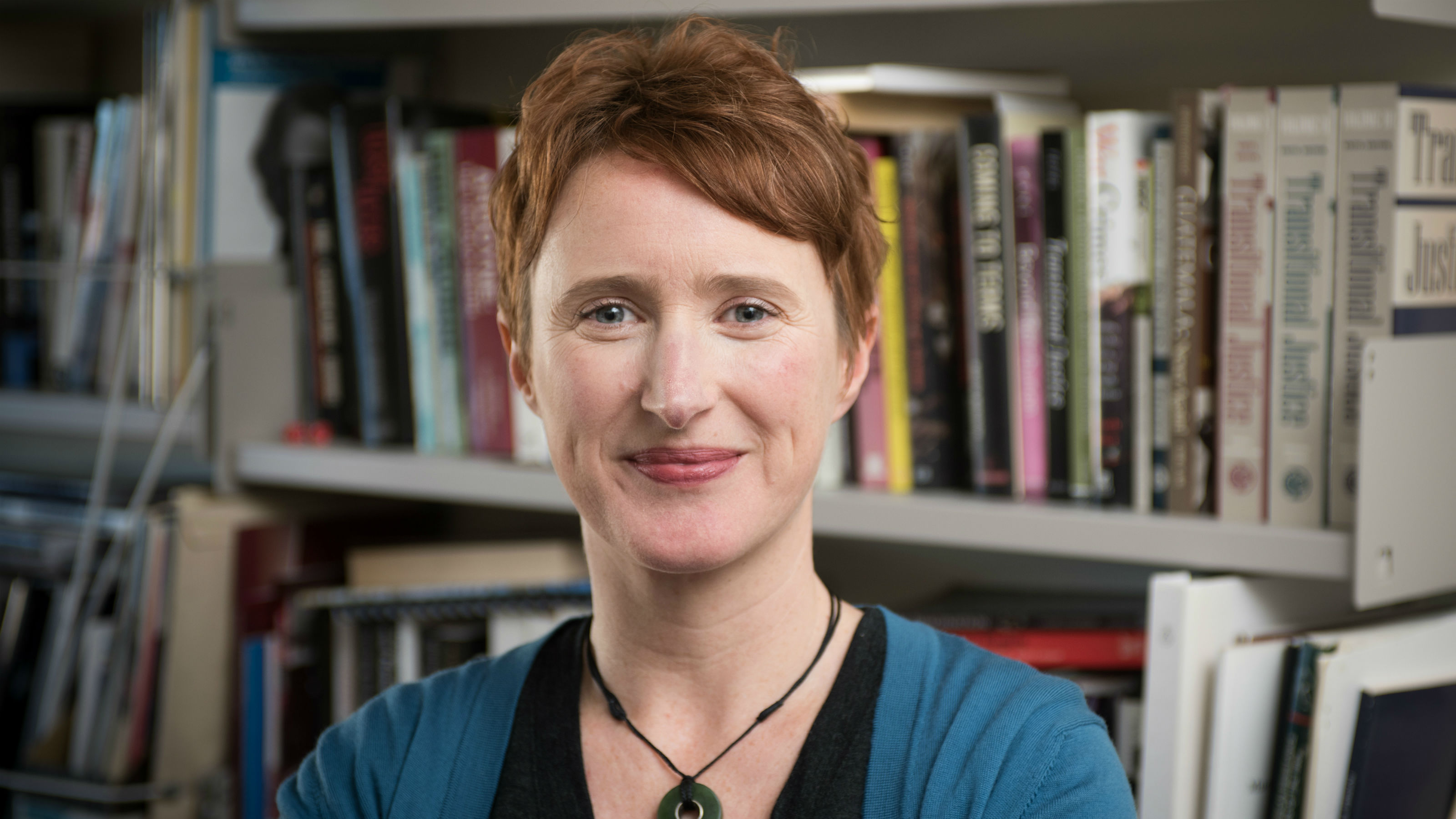Terms of reference for the new Royal Commission into State Abuse’

Hui on Royal Commission on Abuse in State Care – Getting It Right
In February this year, Dr Elizabeth Stanley co-convened a hui to consult on the terms of reference for the new Royal Commission on Abuse in State Care. The government announced a Royal Commission to inquire into Abuse in State Care, with the appointment of Sir Anand Satyanand as its Chair. The Commission will be the largest ever undertaken in New Zealand’s history, and is expected to run for at least three years. Draft Terms of Reference were released on the 12th February, and Sir Satyanand is to lead a consultation on the Terms with survivors, their families and interested groups over the next three-months.
His first engagement was to attend a two-day hui at Rutherford House, co-convened by Lizzy Stanley (Institute of Criminology), Anaru Erueti (Aotearoa New Zealand Centre for Indigenous Peoples, Auckland University), Rosslyn Noonan (New Zealand Centre for Human Rights Law, Policy and Practice, Auckland University) and Sonja Cooper (Cooper Legal, Wellington). The event, running over 14-15 February, was sponsored by the Law Foundation.
The hui brought together over 50 survivors, activists, academics, professionals, and community-leaders, to discuss and evaluate the Commission’s draft Terms. Contributors included survivors and professionals from Australia, who had useful lessons to share from their own recent Royal Commission into Sexual Abuse. Criminology students Jordan Anderson and Sally Day built a welcoming atmosphere for attendees, many of whom had never previously set foot into a University building.
Across the two days, we discussed many aspects of the Commission’s intended work and began to sketch out how the Commission should operate to be victim/survivor and whanau-led.
The first day focused on what the Royal Commission has to do, its scope and its manner of working, including how it could best fully engage with survivors on its establishment and operations. Following the mihi whakatau, and the opening address by Sir Satyanand, the first panel was led by nine survivors. These speakers had convened and prepared the previous day, at a meeting in the Human Rights Commission. Supported by Commissioner Dame Susan Devoy, the nine detailed some of their abusive experiences across social welfare, correctional, policing, health and educational care settings. They talked about their hopes for the Commission as well as their priorities for the future. It was an extremely moving session that demonstrated the real courage and tenacity of survivors who have worked so hard to receive recognition or justice.
From here, the hui examined the scope of the Terms of Reference. There was relative agreement that certain aspects of the Terms (such as the cut-off dates from 1950-1999) have to be removed to allow a full acknowledgement of abuse, and to ensure that the Commission can make useful recommendations to change ongoing systems or processes that set the ground for abusive practices. Similarly, there was significant debate about what should be included under the ambiguous term ‘state care’.
Attendees also had plenty of ideas about how the Commission should engage, in culturally-safe ways, with survivors, their whanau and communities. At present, the Terms make no mention of the Treaty – quite an unbelievable omission given the Commission’s importance, and the fact that Maori children have been differentially targeted, victimised and disadvantaged by the state care system. Given that the Commission also has a mandate to hear from those abused in psychiatric hospitals and residential special schools, attendees noted that the body had to operate in ways that moved beyond systemic able-ism.
The second day of the hui focused on what the Royal Commission will produce as well as its longer-term impact. The first substantive session focused on the issues of monetary compensation and redress. Survivors gave horror stories of official redress processes that have been ad hoc, non-transparent and, for many, revictimising. Legal advocates explained how the government had relied on legal technicalities to avoid accountability, while academics detailed the options available to reset these approaches.
Apologies were the focus of a further session. An Australian care-leaver and academic detailed the Australian use of apologies, including ‘bad’ and ‘good’ practice in the area. And, finally, the hui considered the issue of how the Royal Commission might pre-empt its ability to prevent future abuse and to develop recommendations that would be implemented. Central, here, is the issue of political will. The previous government had no impetus to develop an Inquiry into abuse, or to change its settings towards victims. We might anticipate therefore that the time-frame to secure change may be relatively short. The Royal Commission will need to be attentive to this real politik, and look to develop early recommendations. After all, a Royal Commission that does not lead to substantive shifts will find that its legacy and reputation is deeply compromised.
In December 2017, Lizzy led the hui organisers in sending government Ministers and senior civil servants two documents: (i) the results of a survey that engaged 422 survivors of abuse, on what they wanted to see in any Inquiry; (ii) a draft framework for the Commission of Inquiry. We were really pleased to see that much of the framework was incorporated into the Draft Terms. We will now produce a hui report that will be sent to the Commission Chair as well as government Ministers, in a bid to convince them to – among other things – remove the time-limit set on the Inquiry. This will probably be the only opportunity in our lifetimes for the state to take responsibility for past abuse and to develop necessary preventative actions. Given the extreme loss and disadvantage faced by state care-leavers, it is certainly worth getting it right!
